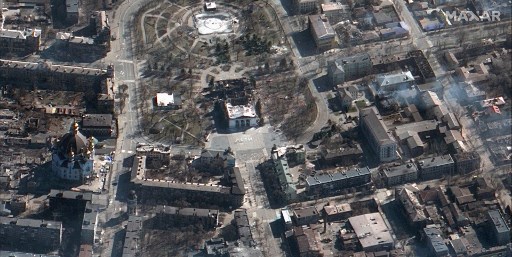
The EU’s foreign policy chief on Monday called Russia’s attack on the Ukrainian port city Mariupol “a massive war crime”, as a string of member states pushed for sanctions on Moscow’s key energy sector.
“What’s happening now in Mariupol is a massive war crime, destroying everything, bombarding and killing everybody,” Josep Borrell said at the start of a meeting of EU foreign ministers in Brussels.
German Foreign Minister Annalena Baerbock echoed the forceful condemnation of Russia’s bombing of civilians in Ukraine.
“The courts will have to decide, but for me these are clearly and unequivocally war crimes,” she said.
“It makes it all the more clear that we, as the European Union, that we as the world community who believe in a rules-based international order, must clearly isolate this regime.”
Borrell said ministers would discuss further support to Ukraine and whether to add fresh sanctions targeting the Russian oil and gas sectors to the barrage of economic punishment already imposed.
A raft of EU nations are pressing for the bloc to bar Russian energy exports. But there is reluctance from economic powerhouse Germany which remains reliant on Russian gas.
“I think it is unavoidable to start talking about the energy sector, and we definitely can talk about oil because it is the biggest revenue to Russian budget and also it’s quite easily replaceable,” Lithuanian Foreign Minister Gabrielius Landsbergis said.
Ireland’s Foreign Minister Simon Coveney said that “looking at the extent of the destruction in Ukraine right now, it’s very hard, in my view, to make the case that we shouldn’t be moving into the (Russian) energy sector, particularly oil and coal”.
Denmark’s top diplomat Jeppe Kofod supported a move to stop Russian ships docking at EU ports and blocking overland transport after Poland called for a trade embargo.
Germany’s Baerbock did not back calls for an immediate halt on Russian energy exports but insisted that Berlin would “gradually, and at full speed, withdraw” from dependence on Russian fossil fuels.
© Agence France-Presse





